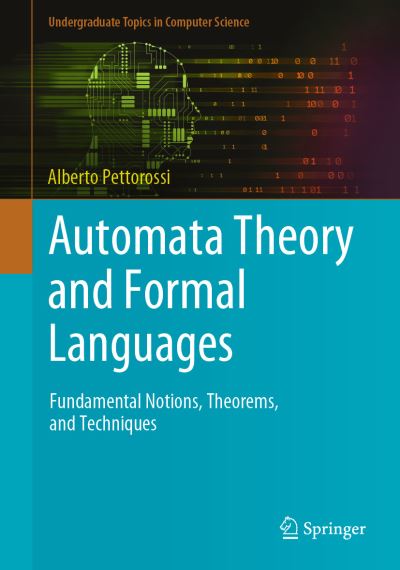
Knowledge of automata theory and formal languages is crucial for understanding human-computer interaction, as well as for understanding the various processes that take place when manipulating knowledge if that knowledge is, indeed, expressed as sentences written in a suitably formalized language. In particular, it is at the basis of the theory of parsing, which plays an important role in language translation, compiler construction, and knowledge manipulation in general.
Presenting basic notions and fundamental results, this concise textbook is structured on the basis of a correspondence that exists between classes of automata and classes of languages. That correspondence is established by the fact that the recognition and the manipulation of sentences in a given class of languages can be done by an automaton in the corresponding class of automata. Four central chapters center on: finite automata and regular languages; pushdown automata and context-free languages; linear bounded automata and context-sensitive languages; and Turing machines and type 0 languages. The book also examines decidable and undecidable problems with emphasis on the case for context-free languages.
Topics and features:
This highly useful, varied text/reference is suitable for undergraduate and graduatecourses on automata theory and formal languages, and assumes no prior exposure to these topics nor any training in mathematics or logic.
Alberto Pettorossi is professor of theoretical computer science at the University of Rome Tor Vergata, Rome, Italy.
| ISBN: | 9783031119644 |
| Publication date: | 13th August 2022 |
| Author: | A Pettorossi |
| Publisher: | Springer an imprint of Springer International Publishing |
| Format: | Paperback |
| Pagination: | 280 pages |
| Series: | Undergraduate Topics in Computer Science |
| Genres: |
Mathematical theory of computation Mathematical logic |